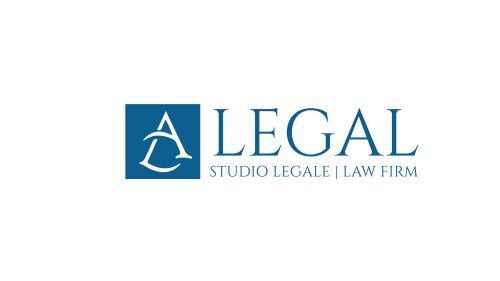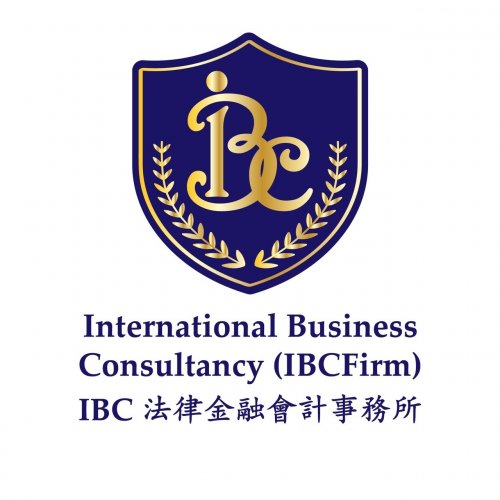Best Acquisition / Leveraged Finance Lawyers in Thailand
Share your needs with us, get contacted by law firms.
Free. Takes 2 min.
Or refine your search by selecting a city:
List of the best lawyers in Thailand
Legal guides written by SIAM LEGAL INTERNATIONAL:
- Defamation Laws in Thailand: Criminal Charges and Civil Suits
- The State of Thailand’s Long-Term Resident (LTR) Visa Program in 2025
- The Penalties Of Not Filing Your Income Tax Return As A Foreigner In Thailand
About Acquisition / Leveraged Finance Law in Thailand
Acquisition and leveraged finance refers to the legal and financial structures used to facilitate the purchase of companies or significant business assets, often utilizing borrowed funds. In Thailand, these transactions are common in mergers and acquisitions, particularly where a buyer seeks to use the assets or future cash flows of the target company as security for the loan taken to fund the acquisition. This type of finance involves complex structuring, negotiation, and compliance with local banking, securities, and corporate laws.
Why You May Need a Lawyer
You may need legal assistance in acquisition and leveraged finance for several reasons:
- Advising on the appropriate financing structure for an acquisition or buyout
- Due diligence on the target company to uncover legal or financial risks
- Drafting and negotiating loan agreements, security documents, and ancillary contracts
- Navigating regulatory approvals from Thai financial or investment agencies
- Mitigating risks related to cross-border transactions, foreign currency exchange, or tax obligations
- Ensuring compliance with Thai banking, foreign investment, and anti-money laundering laws
Local Laws Overview
Acquisition and leveraged finance transactions in Thailand are governed by a combination of laws and regulations, including the Civil and Commercial Code, Securities and Exchange Act, Foreign Business Act, Public Limited Companies Act, and banking regulations overseen by the Bank of Thailand. Key aspects include:
- Restrictions on Foreign Investment: The Foreign Business Act restricts foreign ownership in certain sectors, impacting the structure of acquisition deals involving overseas parties.
- Security Interest Creation: Security over assets like shares, land, and other significant property is subject to registration, perfection, and enforcement rules laid out in the Civil and Commercial Code and related statutes.
- Financial Assistance Limitations: Thai law generally restricts a target company's ability to give financial assistance to a buyer for the acquisition of its own shares, which may affect leveraged buyout structuring.
- Regulatory Approvals: Acquisitions may require prior approval from governmental bodies, particularly for large deals or those in regulated industries (e.g., banking, telecoms, insurance).
- Enforcement and Insolvency: Rules on creditor rights, priority, and enforcement are crucial, especially in deals with significant leverage or risk of default.
- Currency and Exchange Control: The Bank of Thailand regulates foreign exchange transactions, and certain cross-border payments may require approval.
Frequently Asked Questions
What is leveraged finance in the context of Thai business transactions?
Leveraged finance involves the use of borrowed funds to acquire a company or its assets, with the acquired assets or future revenue streams serving as collateral for the debt. This enables buyers to undertake larger deals with less equity capital upfront.
Can a Thai company provide security over its assets for an acquisition loan?
Yes, a Thai company can provide security such as mortgages or pledges over its assets to support an acquisition loan, subject to certain legal requirements, registration with relevant authorities, and ensuring that the granting of security is permitted under Thai law and the company's constitutive documents.
Are there any restrictions on foreign participation in acquisition finance in Thailand?
Yes, the Foreign Business Act imposes restrictions on foreign ownership in specific sectors. Foreign investors may need to structure deals carefully and comply with licenses or approval requirements based on the nature of the business acquired.
How are acquisition loans typically structured in Thailand?
Acquisition loans in Thailand are often structured through senior secured loans, mezzanine finance, or a combination of debt and equity. Security is usually taken over the shares of the target company and key assets. The structure must comply with local law and any regulatory constraints.
What is financial assistance and is it allowed in Thailand?
Financial assistance refers to a target company providing assistance (like guarantees, loans, or security) to help the buyer fund the purchase of its own shares. In Thailand, such assistance is generally restricted to prevent abuse, especially in public companies, so legal advice should be sought before structuring such arrangements.
What kind of due diligence is needed for leveraged finance transactions?
Comprehensive legal and financial due diligence is essential, covering the target’s corporate structure, regulatory status, financial health, existing liabilities, litigation, and asset ownership, to identify risks that could affect the financing or future operations.
How are acquisition loans enforced in case of default?
Lenders may enforce security interests through court proceedings. The process depends on the type of asset used as collateral and compliance with procedural requirements under Thai law. Insolvency or bankruptcy of the borrower also affects the enforcement process and creditors’ rights.
Are there any tax considerations in leveraged buyouts in Thailand?
Yes, both financing structure and acquisition method carry tax implications such as stamp duty, withholding tax, and value-added tax. Interest deductibility, transfer pricing, and thin capitalisation rules should also be considered in cross-border financings.
Do acquisition and leveraged finance deals require regulatory approval?
Depending on the size and sector, certain transactions may require approval or notification to agencies like the Bank of Thailand, Securities and Exchange Commission, or Trade Competition Commission, especially in regulated industries.
Can loans be made in foreign currencies for acquisitions in Thailand?
Yes, but such loans are subject to foreign exchange regulations and reporting requirements, especially if repayments will be made from Thai-based revenue. There may be certain restrictions and conditions needing compliance with Bank of Thailand rules.
Additional Resources
If you need more information or support related to acquisition or leveraged finance in Thailand, consider consulting these entities:
- Bank of Thailand - The main regulator for banking and finance laws
- Securities and Exchange Commission (SEC) - Oversees securities, mergers, and acquisitions involving public companies
- Department of Business Development (Ministry of Commerce) - For company and asset registration questions
- Trade Competition Commission - Handles antitrust and competition aspects of acquisition deals
- Thai Bar Association - Directory of qualified legal professionals
- International law firms and local legal practitioners specializing in M&A and finance
Next Steps
If you believe acquisition or leveraged finance applies to your business plans in Thailand, it is crucial to take the following steps:
- Assess your acquisition and financing goals and prepare an outline of the proposed transaction
- Consult with a lawyer experienced in Thai acquisition and finance law to evaluate deal structure, risks, and compliance needs
- Arrange for comprehensive legal and financial due diligence on the target entity or assets
- Identify relevant regulatory and tax implications, including licensing or approval requirements
- Negotiate and document all loan, security, and acquisition agreements under proper legal guidance
- Monitor changes in local laws or market conditions that could impact your financing or acquisition strategy
Seeking the advice of an experienced legal professional early in the process can help anticipate and navigate legal complexities, mitigate risks, and maximise the value of your acquisition or investment in Thailand.
Lawzana helps you find the best lawyers and law firms in Thailand through a curated and pre-screened list of qualified legal professionals. Our platform offers rankings and detailed profiles of attorneys and law firms, allowing you to compare based on practice areas, including Acquisition / Leveraged Finance, experience, and client feedback.
Each profile includes a description of the firm's areas of practice, client reviews, team members and partners, year of establishment, spoken languages, office locations, contact information, social media presence, and any published articles or resources. Most firms on our platform speak English and are experienced in both local and international legal matters.
Get a quote from top-rated law firms in Thailand — quickly, securely, and without unnecessary hassle.
Disclaimer:
The information provided on this page is for general informational purposes only and does not constitute legal advice. While we strive to ensure the accuracy and relevance of the content, legal information may change over time, and interpretations of the law can vary. You should always consult with a qualified legal professional for advice specific to your situation.
We disclaim all liability for actions taken or not taken based on the content of this page. If you believe any information is incorrect or outdated, please contact us, and we will review and update it where appropriate.
Browse acquisition / leveraged finance law firms by city in Thailand
Refine your search by selecting a city.
















